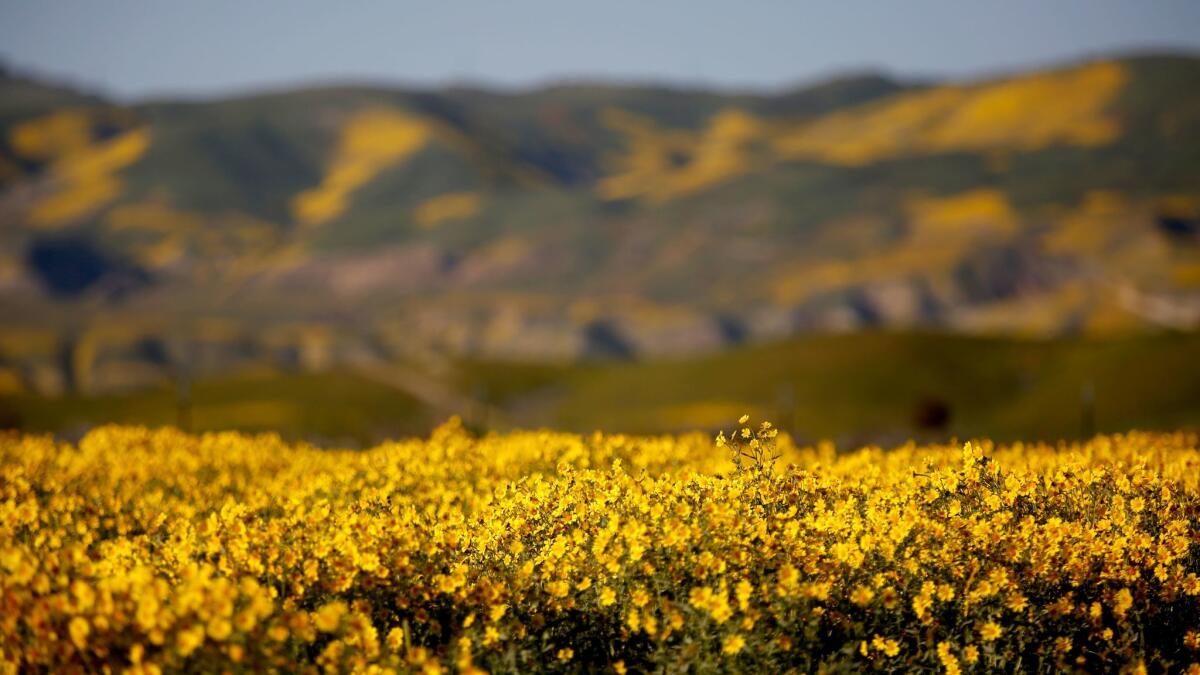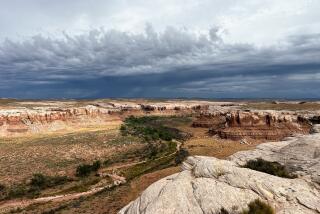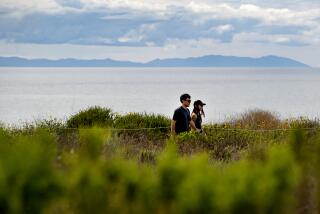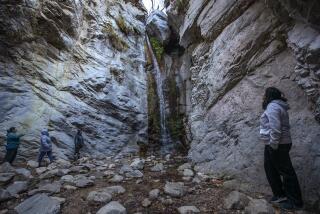California attorney general to Trump: You can’t touch our national monuments

California’s attorney general argued Thursday that President Trump has no legal authority to revoke or modify national monuments created by previous administrations.
In an 11-page letter to the Interior Department, state Atty. Gen. Xavier Becerra vowed “to take any and all legal action necessary” to preserve six California monuments, including one in Los Angeles’ backyard, that the Trump Administration may attempt to revoke or shrink.
In April, Trump signed an executive order directing Interior Secretary Ryan Zinke to review all national monuments that were created since 1996 and are larger than 100,000 acres, or were expanded “without adequate public outreach.”
Six California monuments created by Presidents Obama and Clinton are on the review list:
- The San Gabriel Mountains monument, which forms a backdrop to Los Angeles.
- The Mojave Trails and Sand to Snow monuments in the Southern California desert.
- The Giant Sequoia monument in the southern Sierra Nevada.
- The Carrizo Plain monument on the southwestern edge of the San Joaquin Valley.
- The Berryessa Snow Mountain in Northern California.
Monument designation adds another layer of protection to federal lands, typically putting them off limits to oil and gas development or limiting logging and grazing.
Presidents have the authority to designate monuments under the Antiquities Act of 1906, which President Theodore Roosevelt used to set aside more than 800,000 acres in Arizona that later became Grand Canyon National Park.
In his letter Thursday, Becerra echoes arguments made by conservationists and many environmental attorneys: While the Antiquities Act gives presidents the authority to create monuments, it does not give presidents the authority to undo or modify them. That power belongs solely to Congress.
In announcing the review, the Trump administration specifically mentioned two big Utah national monuments as an example of federal overreach: Grand Staircase-Escalante National Monument and the Bears Ears National Monument.
Both were controversial in a state that has frequently chafed under federal control of large chunks of its land.
In California, timber interests opposed creation of the Sequoia monument in Sequoia National Forest because Clinton banned commercial logging in and around nearly three dozen giant sequoia groves.
For the most part, however, the six California monuments were widely supported.
Becerra predicted that California will not be the only state to fight Trump’s executive order.
“I expect that I will be joined by many of this country’s state attorneys general in using all of the legal tools at our disposal to ensure that the rule of the law is followed,” he wrote.
Asked for comment, the Interior Department’s press office referred The Times to the news release that accompanied the executive order.
“For years, the people of Utah and other rural communities have voiced concern and opposition to some monument designations. But too often in recent history, exiting presidents make designations despite those concerns,” Zinke stated.
Twitter: @boxall
ALSO
Jerry Brown in China with a climate message to the world: Don’t follow America’s lead
Greenhouse emissions fall for another year in California
More to Read
Sign up for Essential California
The most important California stories and recommendations in your inbox every morning.
You may occasionally receive promotional content from the Los Angeles Times.











